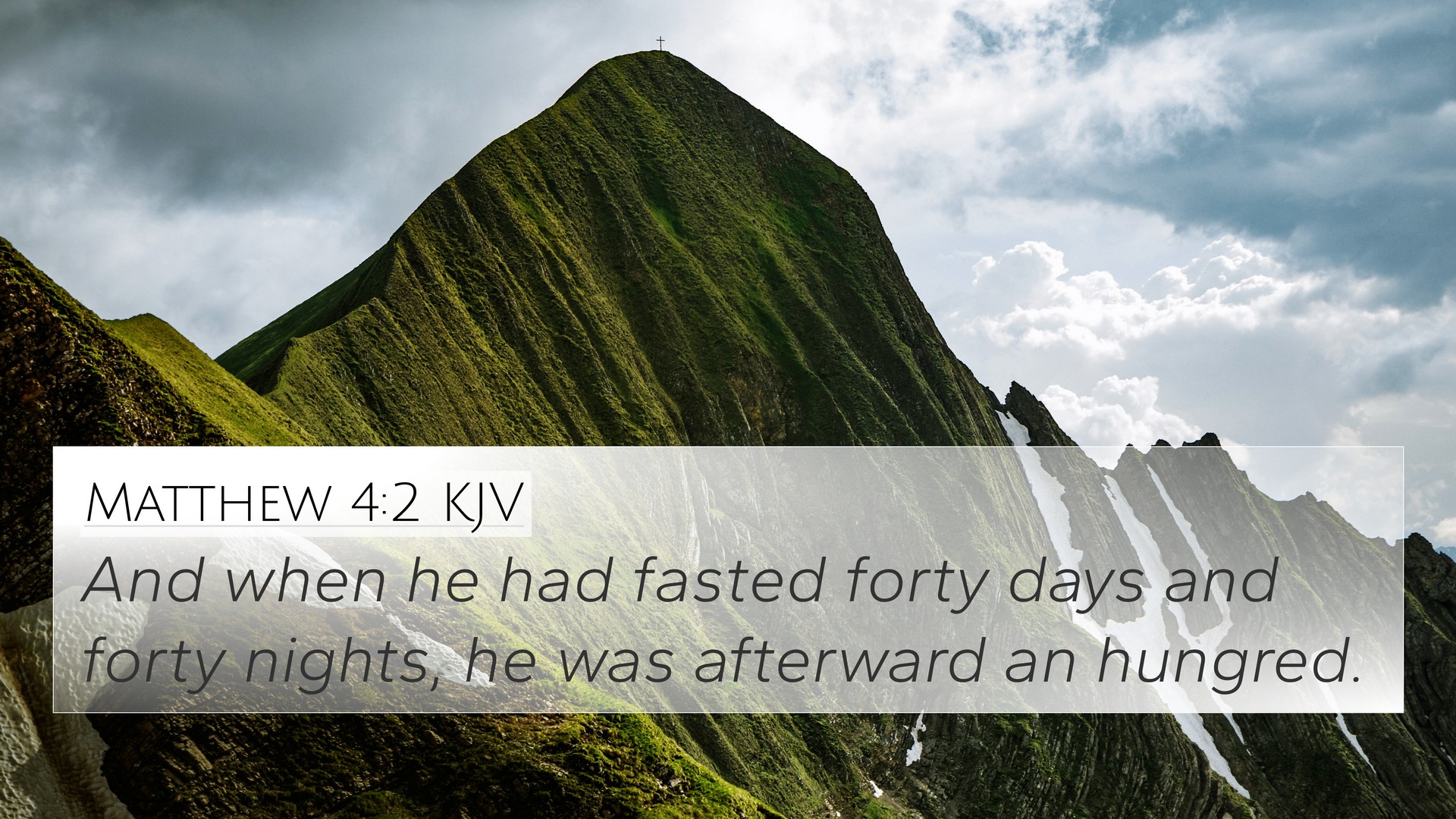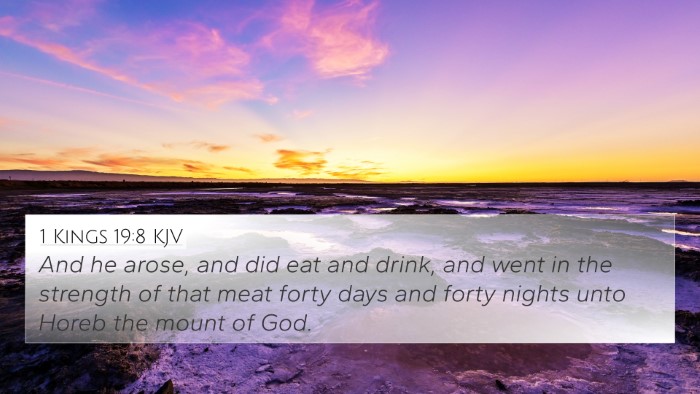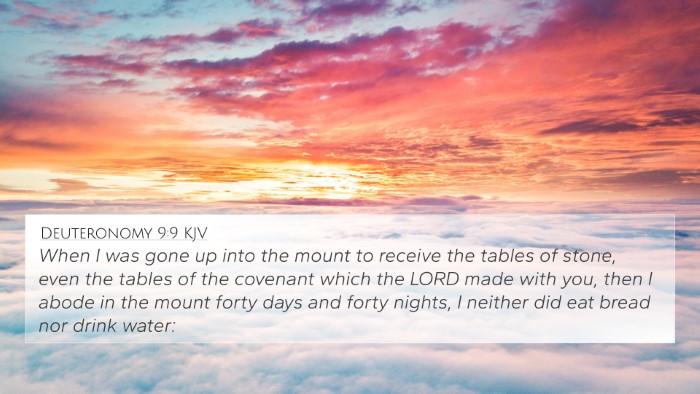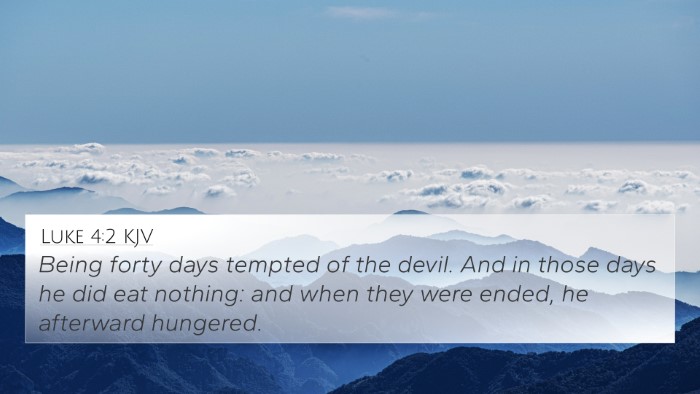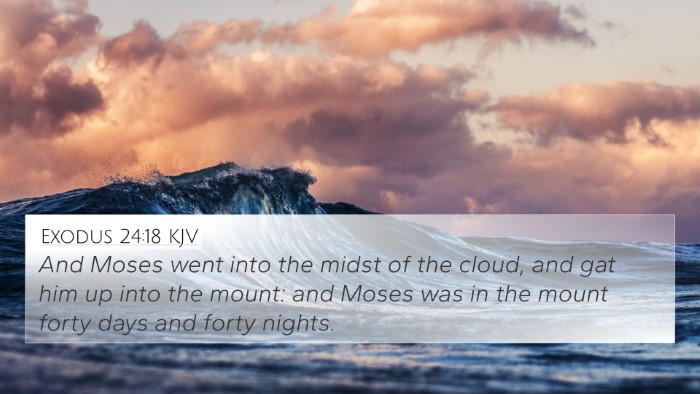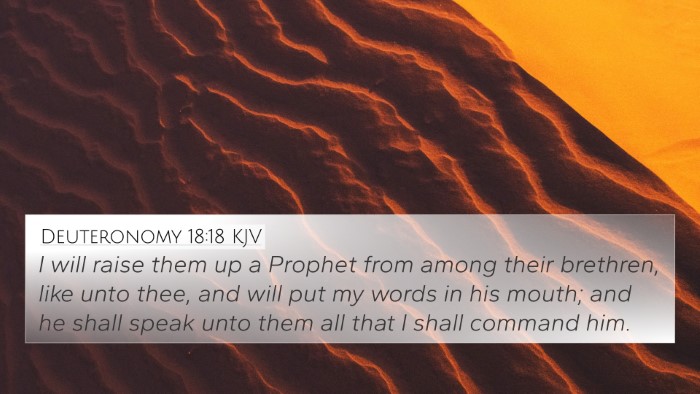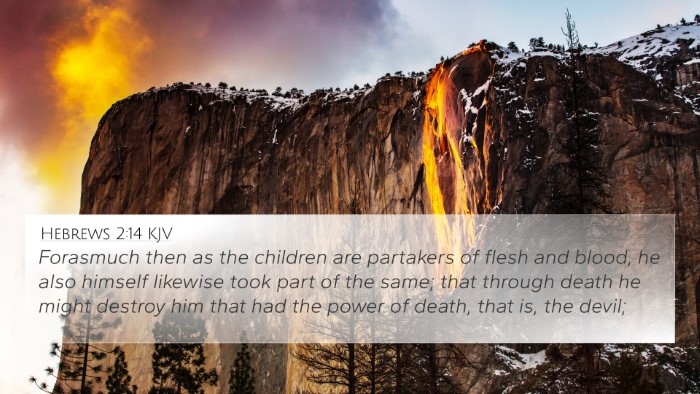Understanding Matthew 4:2
Matthew 4:2 states, "And when he had fasted forty days and forty nights, he was afterward an hungred." This verse marks a significant moment in the life of Jesus and sets the stage for his ministry following his baptism. Below, we delve into the insights gathered from public domain commentaries, which illuminate the meaning behind this verse.
Commentary Insights
This verse embodies Jesus's intense spiritual preparation for his ministry. The act of fasting serves as an integral part of his journey toward fulfilling his divine purpose. Here are detailed interpretations based on various well-regarded commentaries:
- Matthew Henry: Henry emphasizes the importance of fasting as a means of seeking communion with God and preparing oneself for significant tasks. He points out that Jesus’s fast for forty days showcases both his humanity and divinity, illustrating his commitment to his mission.
- Albert Barnes: Barnes notes that the number forty is biblically significant, linking this fast to the fasts of Moses and Elijah. He suggests that Jesus’s fast symbolizes a time of preparation, reflection, and reliance on God, highlighting the spiritual significance of hunger in a physical and metaphorical sense.
- Adam Clarke: Clarke discusses the physical implications of the fast and the profound spiritual implications it bears. He suggests that this period of fasting was crucial for Jesus to triumph over temptation, enabling him to fully embrace his role as the Messiah.
Cross-References Related to Matthew 4:2
Understanding cross-references provides deeper insights into this scripture. Below are notable Bible verses that relate to Matthew 4:2:
- Exodus 34:28: "And he was there with the LORD forty days and forty nights; he did neither eat bread nor drink water. And he wrote upon the tables the words of the covenant, the ten commandments."
- 1 Kings 19:8: "And he arose, and did eat and drink, and went in the strength of that meat forty days and forty nights unto Horeb the mount of God."
- Luke 4:2: "Being forty days tempted of the devil. And in those days he did eat nothing: and when they were ended, he afterward hungered."
- Isaiah 58:6: "Is not this the fast that I have chosen? to loose the bands of wickedness, to undo the heavy burdens, and to let the oppressed go free, and that ye break every yoke?"
- Matthew 6:16-18: "Moreover when ye fast, be not, as the hypocrites, of a sad countenance: for they disfigure their faces, that they may appear unto men to fast. Verily I say unto you, They have their reward."
- Romans 12:1: "I beseech you therefore, brethren, by the mercies of God, that ye present your bodies a living sacrifice, holy, acceptable unto God, which is your reasonable service."
- John 4:31-34: "In the mean while his disciples prayed him, saying, Master, eat. But he said unto them, I have meat to eat that ye know not of."
Thematic Connections
Several themes emerge from the combination of these verses:
- Importance of Fasting: The act of fasting is highlighted through both Jesus’ temptation and the examples of Moses and Elijah.
- Human and Divine Nature: Jesus’s suffering through hunger emphasizes his full humanity, making him relatable as the high priest.
- Preparation for Ministry: Each reference illustrates how fasting serves as a spiritual preparation for significant tasks and revelations.
- Temptation and Struggle: The context of endurance through fasting relates to the trials faced at key moments in biblical history.
- Seeking God’s Strength: The aforementioned scriptures direct believers to turn to God during times of need and seek strength through fasting.
Implications for Personal Reflection
The spiritual lessons contained in Matthew 4:2 invite individuals to consider their own spiritual practices and the role of fasting in their lives. Are we utilizing fasting as a way to draw closer to God? Are we prepared to face our own temptations and struggles with the same spirit that Jesus demonstrated? Reflecting on these questions may lead to a deeper understanding of our faith journeys.
Conclusion
Matthew 4:2 reveals a profound aspect of Jesus's preparation for his mission through fasting, resonating deeply in the lives of believers today. Cross-referencing related biblical texts enhances our comprehension of the spiritual significance of this verse. Through thematic connections and personal reflection, we can draw nearer to understanding God's word.
Final Thoughts
As we explore the connections between Matthew 4:2 and related Bible verses, we engage in a deeper study that nurtures our faith and understanding. Utilizing tools for Bible cross-referencing can open up new avenues for learning, helping us identify and appreciate the interconnectedness of the scriptures. This practice not only enriches our knowledge but also strengthens our spiritual journey.
